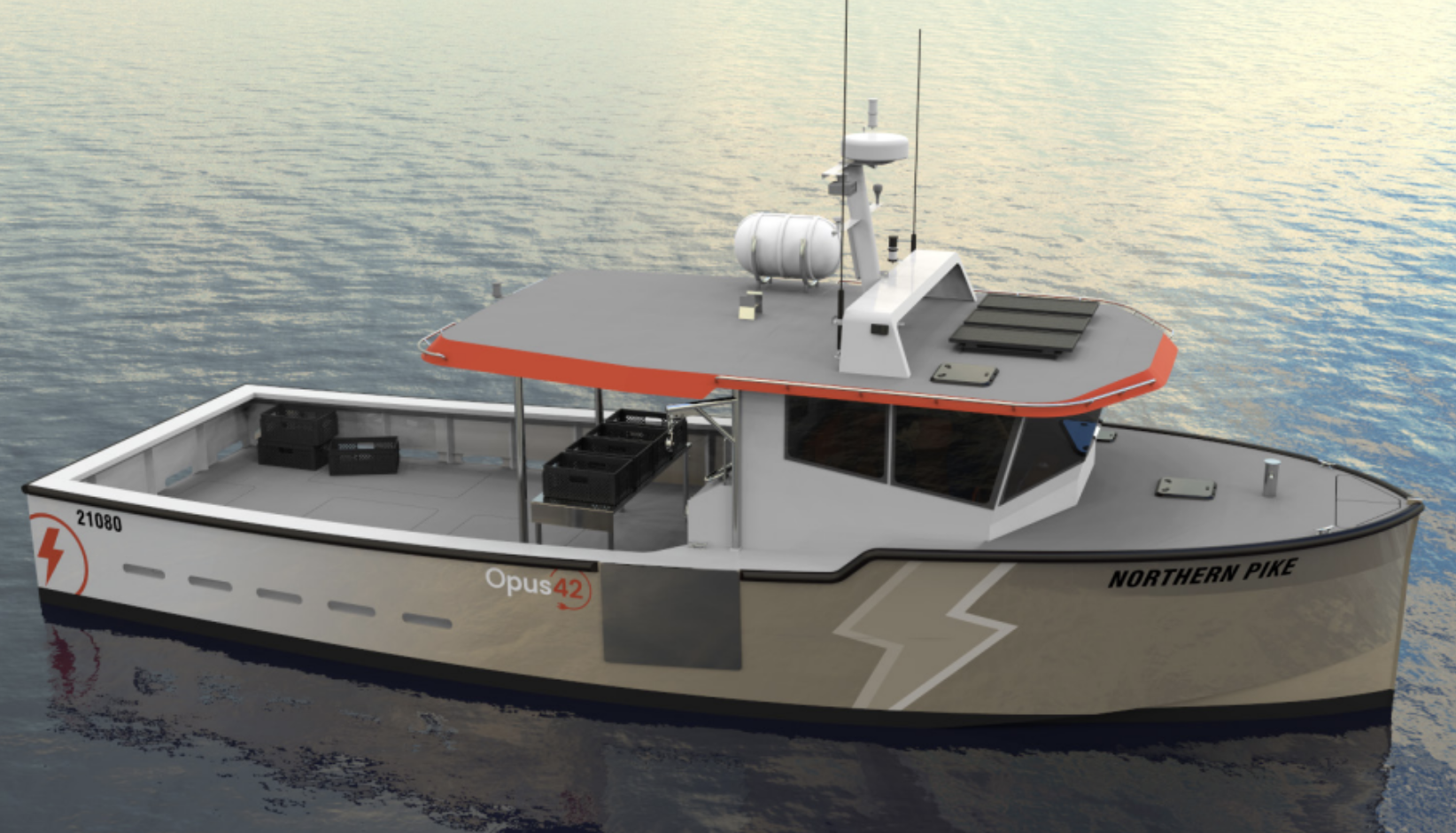Navigating the Future: Allswater Led Electrification Study for Ocean’s North Sets Sail

At Allswater, we’ve always believed that ships are cool. But what’s even cooler is transforming the marine industry towards sustainability and innovation. Our electrification study for Ocean’s North of the Nova Scotia’s lobster fishing fleet is not just about reducing emissions; it’s about charting a course toward a more sustainable, efficient, and exciting future for marine engineering. Explore how Allswater is setting sail into uncharted waters to redefine the industry.
A Sustainable Vision
Ships and boats have been the lifeblood of human civilization for centuries, but with that legacy comes a responsibility to safeguard the environment. The electrification study is a testament to our commitment to sustainability. Nova Scotia’s lobster fleet, while culturally and economically significant, has been a source of substantial CO2 emissions. Our vision is clear: harness the power of innovation to reduce these emissions and pave the way for a greener future.
Zero-Emission Propulsion Systems
The heart of the electrification study lies in the exploration of zero-emission propulsion systems. These technologies are not just revolutionary; they are the future of inshore marine operations. By replacing traditional fossil fuels with cleaner, more efficient alternatives, we can significantly reduce the industry’s carbon footprint. The study found that many vessels in Nova Scotia’s lobster fleet remain close to the shore, well within the range of battery-electric systems. Converting these vessels to electric propulsion could reduce emissions by over 60 percent.
Economic Benefits
Sustainability is not just about environmental impact; it’s also about economic viability. Our study reveals that electrifying the lobster fleet could over time lead to substantial cost savings on fuel and maintenance for fishers. This economic advantage is a win-win for both the industry and the environment.
A Beacon of Innovation
The electrification study represents more than just a technical examination; it’s a beacon of innovation in the marine world. This project serves as a testament to the power of collaboration and the fusion of multidisciplinary expertise. The project team included experts from Rimot, the Renewable Energy Storage Lab at Dalhousie University, Nova Scotia Community College, and Kempy Energetics. Together, this diverse group of professionals harnessed their knowledge base, experience, and creativity to address the industry’s most formidable challenges with unwavering enthusiasm and expertise.
Charting the Course
As we navigate the waters of change, we do so with a clear purpose. The electrification study represents our commitment to a more sustainable marine future. We understand the cultural and economic significance of the lobster fleet in Nova Scotia and recognize the need for change. Our study is a step toward realizing a vision where ships remain cool, not just for their history, but for their future.
Explore Further
To dive deeper into the electrification study and its implications, we invite you to explore the comprehensive press release and the full study. These resources provide in-depth insights into this transformative initiative.
At Allswater, we believe that ships are cool, but we also believe that they can be cool in a different way – cool for the planet, cool for the economy, and cool for future generations. The electrification study is just one chapter in our journey towards a more sustainable and innovative marine industry. Together with our partners and collaborators, we’re shaping a future where sustainability and coolness go hand in hand.
Stay tuned as we continue to pioneer sustainable seas and transform the marine landscape. The adventure has just begun, and the horizon is limitless.
Remember, ships are cool, and the future of ships is even cooler.